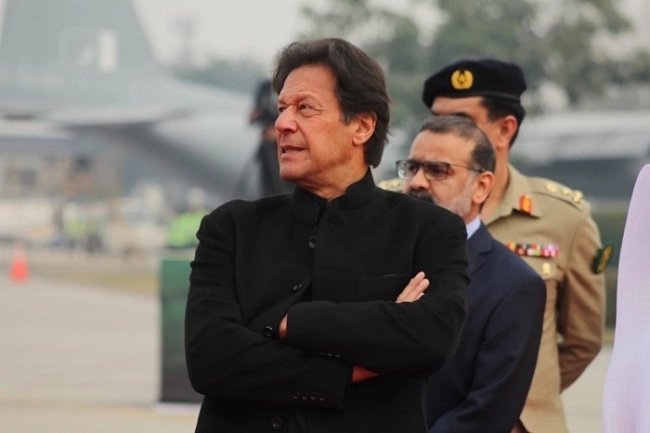By: Gamal Khattab
Former Pakistan prime minister Imran Khan made a bold claim that the United States, with the help of the army, orchestrated his removal from power. He even waved a paper at public rallies, claiming it was a diplomatic cable that proved his allegations. The leaked cable, now made public, revealed that the US was unhappy with Khan's visit to Russia during the Ukraine crisis. This revelation seemed to confirm Khan's suspicions.
A Veiled Threat
The leaked cable also contained a veiled threat from the US Assistant Secretary of State for South and Central Asia. He hinted that if the no-confidence vote against Khan succeeded, all would be forgiven in Washington. This suggested that the US had a hand in Khan's removal and that his presence in Moscow during the Ukraine crisis had caused tension.
Army's Role
It appears that the army had already decided to remove Khan even before the leaked cable reached him. The opposition quickly moved a no-confidence motion, leading to Khan's removal. Once Khan was gone, the Pakistan army started providing military support to Ukraine, and in return, the US signed a military pact with Pakistan.
Imran Khan's Fate
Imran Khan now finds himself in Attock jail, wondering when he will be able to get out. There are other cases against him that the army could use, making it difficult for him to compromise. However, fortunes can change quickly, so it's uncertain what the future holds for Khan.
The US Influence
The US has been a dominant force in Pakistan, with significant economic and military influence. Pakistan relies on the US for exports, financial support, and diplomatic assistance in dealing with India. This dependency makes it challenging for Khan to navigate the competing interests of the US and China.
No Easy Way Out
Given the circumstances, it seems unlikely that Imran Khan will be released from jail anytime soon. He may have to face the consequences of his actions, and there are no guarantees of a quick resolution. The situation serves as a reminder that in this part of the world, fortunes can change rapidly, and today's leaders may become tomorrow's prisoners.


